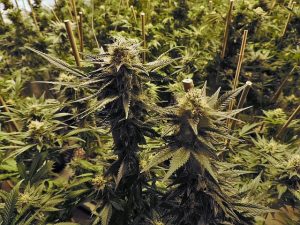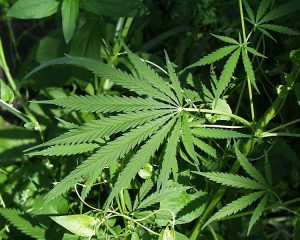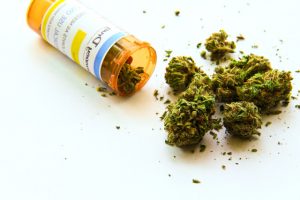Cannabis Activists get high in front of White House in drug law protest
Hundreds of cannabis activists smoked marijuana in front of the White House on Saturday, April 2, in a demonstration aimed at getting cannabis removed from the federal government’s most serious category of illegal drugs.
The mass protest, led by DCMJ, a D.C.-based marijuana groups whose activists could be seen wearing distinctive, smurf-like ski hats, called on President Obama to take marijuana off the list of Schedule I of the Controlled Substances Act. This classification given to the “most dangerous drugs” by the federal government puts marijuana in the same place as heroin, baths salts an LSD, allowing it to be prosecuted aggressively.
At around 4:20 p.p Eastern Time, which was chosen with the number 420 associated with weed, the protesters lit up their joints, fired up their bowls and pulled on their vaporizers in unison with little disruption from the Secret Service or the local police force. A 51-foot plastic inflatable joint was unveiled with the message “Obama, deschedule cannabis now” that was specifically made by artists for the occasion.
A founder of DCMJ and leader of the 2014 campaign to legalize recreational marijuana in D.C., Adam Eidinger, said that law enforcement initially refused to let the inflatable joint into Lafayette Square Park, but they were able to circumvent them by smuggling it in deflated and then inflating it into the park.
“Eidinger joked, “Just like good stoners everywhere, we snuck a 51-foot join, past the Secret Service.
Smoking in public is still illegal in the district, despite a November 2014 vote to legalize it. It remains illegal on federal land, including Lafayette Square Park and the pedestrian street in front of it, under any circumstances. Eidinger expected for arrests to be made and even publicly expressed his readiness to be arrested for the cause.
However, according to Eidinger, he had not heard of any arrests, though some police citations were issued.
It was clear, however, that the D.C. police offers mostly turned a blind eye to public marijuana consumption. Several motorcycle-bound officers provided an escort for the group to march on K Street NW following the protect, during which many demonstrators smoked openly. “Legalize It”, Peter Tosh’s cannabis anthem blared from speakers as the parade went forward.
The march ended at the corner of K Street NW and Vermont Avenue, where protest organizers had attached a mock jail cell to the trailer post of an SUV in protest of the incarceration of marijuana smokers. A sign above the mock jail cell said “Jail Is Not A Drug Policy” in bed red letters.
Obama has the constitutional authority to remove marijuana from Schedule I without the need for congressional approval. Switching it to Schedule III, for example, would allow marijuana businesses in states where the drug is legal to deduct business expenses, and restore access to student loans and public housing for convicted users, among other benefits according to Ilya Shapiro, a legal scholar at the libertarian Cato Institute.
Eidinger mentioned that if Hillary Clinton wants to ensure high turnout from Sanders’ supporters in the general election, endorsing the reclassification of marijuana would be a good way to do so.
“As a Bernie supporter, I do want to see a united Democratic Party, but you gotta give us something — this is like in the top three or four issues of Bernie supporters,” Eidinger said.
Sanders was the clearly the preferred candidate of rally attendees, many of whom wore “Bernie” pins and shirts.
Other cannabis activists described their involvement in down-ballot races. Zack Pesavento, 29, a veteran of the D.C legalization campaign, is president of 420 USA Super PAC, a Super PAC dedicated to electing pro-legalization members of congress. The group has plans to help unseat Rp. Andy Harris (R-Md), one of the fiercest opponents in Congress of Washington, D.C.’s attempts to legalize the substance.



